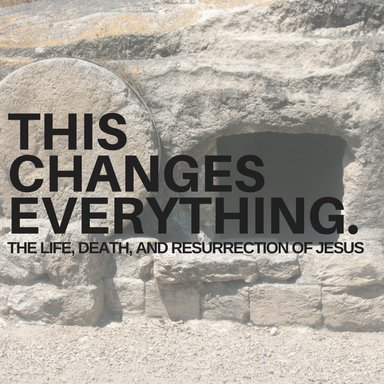My vicar has written another great piece on where the CofE (Church of England) is currently at and particularly where the dilly-dallying of the ABC (Archbishop of Canterbury) could end. It all starts simply with reference to a child's game but ends firmly with the challenge to always side with the Rock!
Do you know the children's game called 'Rock, Paper, Scissors'?
It's simple enough: two children bump both fists together three times in quick succession and then each shouts 'rock', 'paper' or 'scissors'. At the same time, they make a shape with one of their hands: a clenched fist for rock, flat hand for paper, and v-shape with two fingers for scissors. Rock beats scissors (because it crushes them); paper trumps rock (since it can wrap around it); scissors win against paper (as they cut it).
I was reminded of this game after I read
the letter from Justin Welby rebuking conservative Anglicans for their plans to appoint a 'missionary bishop'. Their move followed the Scottish Episcopal Church's abandonment of the teaching that marriage is between a man and a woman. And the game came to mind because on this whole issue of sexuality, which confronts the entire Anglican Communion, the Archbishop could be said to have three choices:
(1) Scissors. This is the 'split' option. It acknowledges that there is no chance of holding together irreconcilable views on the subject. One side thinks gay rights are a matter of basic human dignity akin to the civil rights struggle in the US. The other side thinks departing from the Christian consensus on matters of sex and morality jeopardises people's eternal salvation and could lead to them going to hell. Each camp regards the other with horror. So a 'scissors' choice would say: let's get real. These two positions are impossible to bridge without compromising the integrity of either. Let's be honest and find a way of forming two distinct church groupings as cleanly and simply as we can.
(2) Paper. This is the 'holding things together' option – either by papering over the cracks or by coming up with a form of words which, at least in the short term, could satisfy enough people to keep the Anglican show on the road. At the moment, this seems to be Justin Welby's preference with his talk of 'good disagreement'.
(3) Rock. Jesus says, 'everyone who hears these words of mine and puts them into practice is like a wise person who built their house on the rock,' (Matthew 7v24). Therefore, this option would involve Justin Welby saying, 'This is what I believe the Bible says about marriage and sexuality; so this is what, as disciples of Jesus Christ, we will follow.'Moreover, in his letter, the Archbishop refers to the appointment of Rod Thomas as Bishop of Maidstone to provide oversight for those opposed to women bishops on grounds of theology and conscience. This 'clearly demonstrates how those with differing views still have their place in the Church of England,' he says. The implication – although it is not explicit – seems to be: 'If we could do this for that, perhaps we can do the same over sexuality'. That's doubtful – for reasons the theologian Martin Davie, of the Oxford Centre for Religion in Public Life,
has written.
It is not clear, to be honest, what he thinks on this topic any more. An evangelical General Synod member said to me recently words along the lines of: 'We like him as a person; we are confident he preaches the cross and resurrection; but on this issue we have lost confidence in him.' It may strike many as odd that the Archbishop seems clearer on matters of church structure (rejecting the idea of a 'missionary bishop') than he does on church belief (about sexuality). The former is no doubt important, but the latter is about people's lives everywhere and every day.
In the light of all this, we have to be candid: unless something unexpected happens, the 'scissors' option will unfold in the Church of England, just as it has in north America, and ultimately globally. The 'paper' option may satisfy some, but as many on both sides regard it as a matter of first-order importance, neither will rest until their viewpoint prevails.
But what about the 'rock' option? Bishops are meant to be 'shepherds of Christ's flock and guardians of the faith of the apostles', as Anglican liturgy puts it, presumably an Archbishop chiefly so. So what is the 'rock' of Jesus' teaching on which Justin Welby wishes us to build? Does he think Jesus said nothing about contemporary sexuality, that love trumps everything, and that today's issues are different from those covered in the New Testament, as proponents of change argue? Or does he think Jesus' teaching on marriage and celibacy, his refusal to bust taboos on this as he does on other issues, and the consensus of Christians for most of the last two millennia, point the other way?
One thing's for sure. In the game 'rock, paper, scissors', it is never clear who is going to win. But in the church, 'rock' always comes out on top. It's an image used many times in the Bible. As Peter puts it in his first New Testament letter: Jesus is 'a stone of stumbling, and a rock of offense' and those who stumble do so 'because they disobey the word'. Rock, paper, scissors. Which choice will the Archbishop make?






